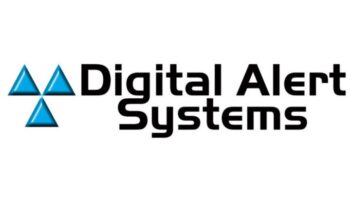WASHINGTON Now that operational specifications are in place, executives with the National Public Radio Satellite System say they are going forward with plans to launch ContentDepot later this year and transform public radio distribution.
System tests at NPR of ContentDepot, which will move distribution into a packet-based audio program delivery satellite system, were expected to begin in February. Station equipment is due to ship this spring. The current system delivers audio and programs in real time as analog or AES digital audio, which limits delivery options from producers to public radio affiliates.
NPRSS officials had hoped to roll out ContentDepot in late 2004 but revised their implementation timetable last fall. The transition now is expected to be complete by August. PRSS is the distribution network through which programming is delivered to NPR affiliates.
Content Depot VendorsNational Public Radio Distribution to date has published current specification and sample files to 16 vendors for interacting with ContentDepot, listed below. Most are expected eventually to become compliant with the new system.
Arrakis Broadcast Electronics (AudioVault) BSI Dalet D.A.V.I.D Systems ENCO Genesys Technologies OMT (MediaTouch) OnAirWare Pristine Systems Prophet Systems RCS Salem/Rivendell Scott Studios Smarts Broadcast Systems WireReady
Source: NPR
To view an updated list, click here.
“Right now we may be a few weeks off our timetable, which we are currently reviewing for rollout of the system,” said Pete Loewenstein, vice president of NPR Distribution. Meetings were scheduled for mid-February to announce a revised target date, if there is one, said Loewenstein.
NPR Distribution is the division responsible for distributing NPR programs to affiliates and will be the major user of ContentDepot.
Loewenstein said there would be a 90-day parallel operations period planned for transitioning from the old system to the new.
A source familiar with ContentDepot development plans said program producers began voicing concern late last year over the use of IP streams for live programs and whether it had the potential to cause latency problems. ContentDepot will use Internet Protocol to send audio content over the satellite system, which increases latency, or delay, to 700 milliseconds. The current PRSS live distribution system carries a 300 ms delay.
There has also been discussion of increasing the forward error correction, a technique used by a receiver for correcting errors incurred in transmission over a communications channel without requiring retransmission of information by the transmitter, said Marty Bloss, director of technology for NPR Distribution.
“We discussed the possibility of adding additional FEC to the ContentDepot streaming technology to increase its resistance to interference. This would have increased latency by as much as two seconds,” Bloss said. “It was determined that it would not be worth the tradeoff.”
A meeting of the PRSS Distribution and Interconnect Committee was called in early January to focus on the IP delay issues. According to PRSS in its report, “A motion to require the live streaming solution for ContentDepot to have no greater latency than the current system’s 300 milliseconds was defeated.”
The D/I Committee in the meeting also addressed concerns over the performance of receivers at some field sites. Preliminary testing of pilot units at 18 sites indicated a higher-than-expected susceptibility to interference in some locations, the committee states in the report.
“Staff reported that most of the interference cases had been eliminated through a combination of local downlink alignment and filtering, and continued improvements in streaming hardware systems,” stated PRSS in the report, which is posted at www.prss.org
Meanwhile, PRSS officials say they are proceeding with implementation of the ContentDepot system with station equipment to be shipped in April and May.
Automation
Bloss describes ContentDepot as a system that treats audio as data files, which will bring new capabilities while using non-proprietary hardware. Producers can use a Web-based interface to post program and program metadata.
“All of the station equipment has been identified and is in the process of being ordered. The head-end software is in the final stages of development and should begin system tests in February, ” Bloss said.
Bloss said programs in ContentDepot take two basic forms: live programs, sent in real time with cues and program-associated data (PAD), and pre-recorded programs sent as MPEG-encoded files.
“Affiliates will take the satellite-delivered live programs from streaming receivers and route them for air or capture them for alternative delivery. Storage receivers automatically store the pre-recorded files in an internal hard drive,” Bloss said.
ContentDepot creates a centralized location for stations to browse for available shows, Bloss said, while producers can track what happens to their materials.
As for the increased latency in ContentDepot, Bloss said, “As with every new system we have rolled out into stations as part of satellite operations, there are local satellite downlink performance issues that must be evaluated and remedied. That work is ongoing.”
Significant work remains to be done with respect to how ContentDepot interfaces with various automation systems at public radio stations and the development of a final program-associated data interface specification for the streaming receiver, Bloss said.
PRSS has published specifications for 16 vendors to begin the process of becoming automation-compliant with ContentDepot, Bloss said. NPR Distribution officials are in various stages of discussion and testing with vendors.
Loewenstein said PRSS conducted ContentDepot training sessions with more than 400 station operations representatives and program producers last year. Some 200 producers and distributors deliver programming via satellite to NPR affiliated stations across the country.
ContentDepot will allow online file submission for producers and allow them to monitor usage via online reports. Some of the features are available to producers already.
“We’re designing the ContentDepot to meet the needs of the public radio community. It’s about flexibility and encouraging the continued growth of public radio through easier access to programming and distribution technologies,” Loewenstein said.







